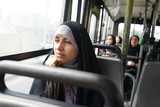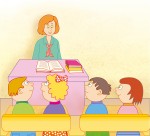Claim Your Dignity – A Series of Reflections for Women & Men
CLAIM YOUR DIGNITY
Dear Friends,
I am deeply disturbed by the continuing revelations of the systematic abuse of women so prevalent in our society. The idea that the “assault of women” is nothing more than “locker room language” is both insulting to men and demeaning of women. Language is a vehicle for communicating the truths and the depths of the human heart. It is more than dangerous to think that language and the use of words and imagery is somehow neutral or “merely” playful. The way we speak and think about another person is, in itself, an issue of justice. The Interfaith Community cannot remain silent on the issue of women’s rights and dignity.
Consider the utter disregard for the lives of women and children in the latest attacks in Syria in particular. We cannot long endure a convenient isolationism by which we render ourselves first at the expense of other suffering people. The demeaning of women leads to a murderous indifference in which the vulnerable and powerless are rendered disposable. The Interfaith Peace Project has long recognized the interconnection of an individual’s heart and global well-being. We stand in solidarity with the people of Syria calling upon the World not to remain indifferent to their plight. We must not shut the doors of our hearts or borders to those who would seek a safe haven.
Women who claim their dignity anywhere stand up for people everywhere. The Interfaith Peace Project is pleased to inaugurate a series of reflective vignettes and questions to facilitate the claiming of one’s dignity. Our dear friend Carrie Knowles has written a series of situational stories inviting women to reflect in such a way as to find their voice and claim their dignity. This humble project is inspired by our participation in the International Women’s Day (every March 8th). We will publish these vignettes on the eighth of every month for the foreseeable future. Engage your friends in reflective dialogue. These situational stories can foster dialogue with men and women alike as we seek to respect all people everywhere. Please share with us your feedback and reflections. World peace and understanding begins in the depth of our minds, hearts and souls.
Peacefully,
Thomas P. Bonacci
Director
with The Board of Directors and
The Advisory Board
Vignette 1
Amal is 40, an attorney with Lebanese and British citizenship. She is licensed to practice law in the U.S., the U.K., and before the International Court of Justice and the International Criminal Court. She has successfully represented clients in cases of violation of human rights.
In 2016, Amal spoke at the United Nations, before the UN Office on Drugs and Crime, about her client Murad, a Yazidi survivor, in legal action against ISIS for genocide, rape, and human trafficking. In March 2017, Amal again addressed the UN on “The Fight Against Immunity for Atrocities: Bringing ISIS to Justice.”
Time wrote about her UN appearance, linking it to International Women’s Day [March 8, 2017]. The article described Amal’s “chic pregnancy look,” noting that she “stepped out outside the UN headquarters in New York City on Wednesday, showing off her baby bump in a dark gray pencil skirt and matching blazer.”
Questions for Your Consideration
What do you think Amal’s feelings may be about the Time article?
What might Amal do in response to the article?
With whom is she likely to share her response?
What are the likely consequences of any action or response Amal makes?
When you consider your own faith tradition, ideally what would you like to see as her response? Is claiming one’s dignity an issue?
How does Amal’s experience resonate with your own experience as a woman?
How may your reflections deepen your intention to stand up for what is right and true?
————————————————-
Vignette 2
Josephine was seriously injured on her job recently and is seeking retraining for a desk job. She was a line worker at an electric power company, the only woman member of the crew and the men regularly teased her about her gender.
One day she slipped and fell many feet to the ground while she was climbing a power pole to repair the line. After the accident, her supervisor asked to see her work boots she always kept in her locker. For safety, work boots have sharp spikes on their soles, to grip the pole. She was shocked when he showed her that the spikes on her boots had been filed down.
Questions for Your Consideration
What do you think Josephine’s feelings may be about the likely cause of her accident?
What might Josephine do in response to this information?
With whom is she likely to share it?
What are the likely consequences if she does—or does not—take some action in this situation?
When you consider your own faith tradition, ideally what would you like to see her do?
How does Josephine’s experience resonate with any of your experiences as a woman?
How may your reflections deepen your intention to stand up for what is right and true?
——————————————–
Vignette 3
Teresa Perez, 32, is an undocumented person from Honduras, who lives in Southern California and cleans homes for a living. Her two young sons, born in the US, attend elementary school. Her husband, Carlos, punched her in the stomach and head last night and today she is bruised and still in severe abdominal pain. She needs medical attention, and also debates if she should report the domestic violence to the police. However, she knows of people who have been picked up for deportation when they went to court for other reasons.
Questions for Your Consideration
What do you think Teresa’s feelings may be about her experience of abuse? What might keep her from seeking medical care?
What do you think her feelings may be about reporting assault to the police, given the possibility of deportation as an illegal alien?
What is Teresa likely to do in this situation?
What are the likely consequences if she does—or does not—take some action?
When you consider your own faith tradition, ideally what would you like to see Teresa do?
How does Teresa’s experience resonate with any of your experiences as a woman?
How may our reflections deepen your intention to stand up for what is right and true?
————————————————
Vignette 4
Farah, a 40 year old American, works as a technician in hospital laboratory in the city, and rides to work on public transit. As a Muslim woman, she wears a headscarf, and wears an ID badge that admits her to the hospital. Today on the bus, a large man confronted her in an angry way and shouted. “Go back to where you came from! You are taking jobs away from Americans!”
Questions for Your Consideration
What do you think Farah’s feelings may be about this encounter?
What do you think Farah might do in this confrontation? What do you think other people on the bus might do?
What are the likely consequences of what she does, or does not do? What are the consequences of what other passengers might do, or not do?
When you consider your own faith tradition, ideally what would you like to se her do? What would you like to see the other passengers do?
How might Farah’s experience resonate with any of your own experiences as a woman?
How may your reflections deepen your intention to stand up for what is right and true?
————————————————
Vignette 5
Joan is 28 years old and is working on her doctorate in science at the state university. She has a scholarship that enables her to manage financially while she prepares for her future career. Her work is supervised by a well-known scientist who has begun to be physically intrusive. He has gone from caressing her shoulders to brushing against her breasts—while he comments about how he can help her keep her scholarship and get an important job in the future. Recently, he took off his jacket and shirt while they were meeting in his office, and sat naked from the waist up.
Questions for Your Consideration
What do you think Joan’s feelings may be about these incidents that occur when she meets with her supervisor?
What might Joan do in this situation? With whom is she likely to share her experience?
What are the likely consequences if she does—or does not—take some action?
When you consider your own faith tradition, ideally what would you like to see her do?
How might Joan’s experience resonate with any of your own experiences as a woman?
How may your reflections deepen your intention to stand up for what is right and true?
————————————————-
Vignette 6
Lynn has been employed as a college counselor for two years at a small co-ed private college. In the past, counseling had been provided by two male psychologists. The demand for counseling services has steadily risen and the President of the college is considering adding another counselor to meet the students’ needs. He tells Lynn that the new colleague should be a man rather than another woman.
What do you think Lynn’s feelings may be about the President’s desire to hire a man rather than another woman?
What might Lynn do in this situatin?
What are the likely consequences if she does or does not take some action?
When you consider your own faith traditin, ideally what would you like to see her do?
How might Lynn’s experience resonate with any of your own experiences as a woman?
How may your reflctins deepen your intentin to stand up for what is right and true?
————————————————–
Vignette 7
Margaret’s daughter, Sarah, has a birthday and the girls and boys in her first grade class are celebrating with games. They play Farmer in the Dell, and Sarah gets to be the Farmer. She chooses Ben to be the Wife, and Ben chooses Robert to be the Child, and Robert chooses Harry to be the Nurse, and Harry chooses Edgar to be the Cow, and Edgar chooses Allen to be the Dog, and Allen chooses Daniel to be the Cat, and Daniel chooses Willie to be the Mouse, and Willie chooses Marvin to be the Cheese. Margaret notices that all the kids chosen to be in the circle are boys except Sarah.
Questions for Your Consideration
What do you think the boys and girls at the party think about what happened?
What might Margaret do in this situation, if anything?
What are the likely consequences if she does or does not take some action?
When you consider your own faith tradition, ideally what would you like to see her do?
How might Margaret’s and Sarah’s experience resonate with any of your own experiences as a woman or as a child?
How may your reflections deepen your intention to stand up for what is right and true?
————————————————-
Vignette 8
Brenda has a new academic teaching job in a small biology department where the three other instructors are men. The local biology teachers’ association is having its monthly meeting at a community center in a nearby town. Her colleagues haven’t mentioned it, so Brenda drives to the meeting herself. As she arrives in the parking area, she finds her three male colleagues getting out of one car, and heading for the meeting.
Questions for Your Consideration
How do you think Brenda should respond to her colleagues?
What are the likely consequences if she does or does not take some action?
When you consider your own faith tradition, ideally what would you like to see her do?
How might Brenda’s experience resonate with any of your own experiences as a woman?
How may your reflections deepen your intention to stand up for what is right and true?
————————————————-
Vignette 9
A transgender woman, Danica Roem, has just been elected to the Virginia House of Delegates. She is the first openly transgender woman elected and seated in a United States statehouse. Danica effectievly turned the attentin of the election from hate to quality of life issues.
“I never ran away from my identiy. Ever. I owned it immediately and I celebrated it…” Her advice to others running for office: “Talk about policy, let’s talk about the stuff that actually affects everyone’s lives…control your own personal narratice and put it out there. Let the people know who you are and then go with your election … ” The Slot 11/16/17
Questions for Your Consideration
What is your response to the election of Danica Roem?
How do you think Danica fidning her voice has contributed to our natinal discourse?
When you consider your own faith traditin, ideally what would you like to see Danica and other women do?
How might Danica’s experience resonate with any of your own experiences as a woman?
How may your reflctins deepen your intentin to stand up for what is right and true?
————————————————-
Vignette 10
Barbara, a high school teacher who has regularly served on a number of community boards on environmental issues decides to run for public office in her state. She’s married and has a daughter aged 10 and twin sons who are eight years old. Her critics put out publicity demanding to know how she will fulfill her duties as a mother if she were elected to the state legislature.
Questions for Your Consideration
How do you think Barbara should respond to the publicity that was put out?
When you consider your own faith tradition, ideally what would you like to see her do?
How might Barbara’s experience resonate with any of your own experiences as a woman?
How may your reflection deepen your intention to stand up for what is right and true?
————————————————-
Vignette 11
Laura graduated from high school at 17 in June and has a full scholarship to a prestigious university in the fall. Her family is conservative in their faith. Unknown to her parents, Laura and her boyfriend Scott had sex just once, as the school year was ending and then they broke up. It is now the middle of July and Laura has just learned she is pregnant.
Questions for Your Consideration
How do you think Laura is feeling about being pregnant?
How should Laura proceed?
What are Laura’s choices? What are the likely consequences of each possible choice?
When you consider your own faith tradition, ideally what would you like to see her do? What would you do if it happened to you or a family member?
How might Laura’s experience resonate with any of your own experiences as a woman?
How may your reflections deepen your intention to stand up for what is right and true?










